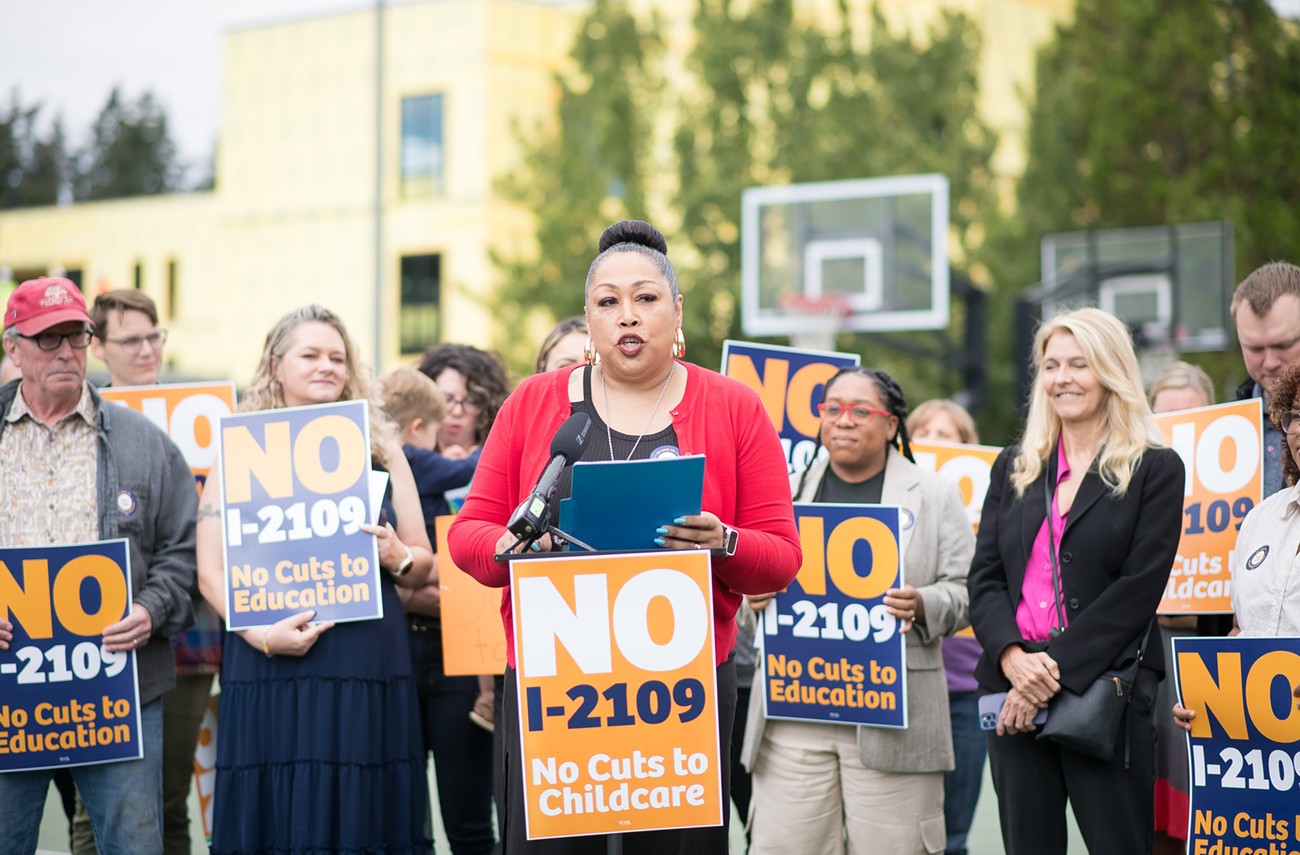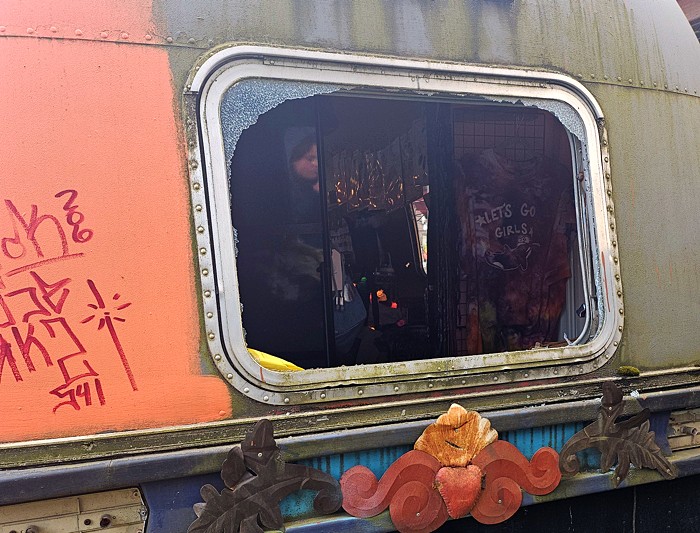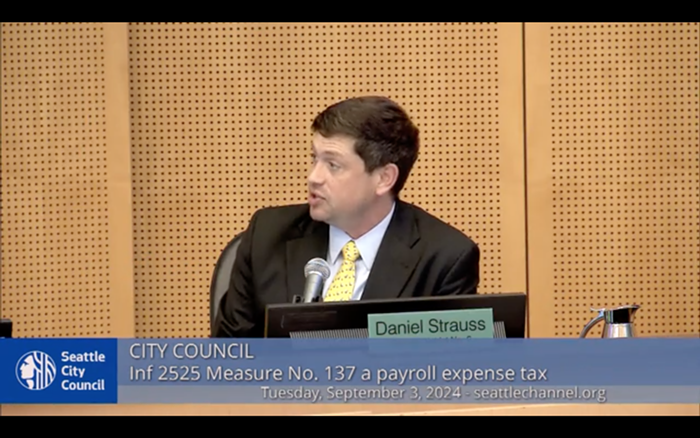As Seattle students returned to the classroom today, advocates stood outside of the construction site of the new Tyee High School to remind the voting public that a rich hedge fund guy wants to gut public education funding by an extraordinary $2.2 billion over five years to give the very wealthiest few Washingtonians a tax break—urging anyone who cares about public education, school construction, childcare, and early learning to vote no on I-2109 in November.
“The future’s of students and young, brilliant minds across the state should never be traded for an extra zero on the super rich’s pay,” said high school senior Jurnee Robinson at a press conference in front of the SeaTac school.
Ultra-wealthy hedge fund CEO Brian Heywood launched the Let’s Go Washington campaign to fight against, among other things, progressive taxation. While he may try to paint himself as a humble, man-of-the-people with his flannel button ups and farmer cosplay, Heywood spent more than $6 million himself to promote his nightmare slate of initiatives. The state legislature passed three of his initiatives outright — one to majorly ease police pursuit restrictions, one to reaffirm a ban on local and state income taxes, and one virtue signal to the homophobic rightwing in the form of a “Parents Bill Of Rights.” The legislature sent his attacks on the Climate Commitment Act, the long-term care payroll tax, and the new capital gains tax to the voters.
I-2109 would repeal the 2021 capital gains tax, which imposes a 7% tax on any profit in excess of $250,000 a year from the sale or exchange of certain long-term capital assets such as stocks and bonds. The state legislature intended the tax to shift the balance of our state’s tax burden, which falls disproportionately on low-income earners. The state made a tax so narrow it only affects the wealthiest .2% of Washingtonians but still generated $896 million in 2023. According to the Washington State Budget and Policy Center, the tax will generate a projected $5.2 billion through 2029 — about $2.2 billion will go toward school construction. Tyee High School represents one of over 170 school construction projects funded by the new capital gains tax.
At the presser, former Tyee teacher Shawna Moore described the poor conditions at the old building, which opened in 1963.
“What message do you think it sends our students about how much the state cares about their education when it can’t even put a non-leaking roof over their heads? How was I supposed to conduct a PE class when the gym roof is leaking and my students were at risk of slipping and being injured during our activities?” Moore asked.
Robinson said she and her classmates watched as students in wealthier areas approved hefty levies to get new schools. The capital gains tax helps spread that wealth around. According to the Washington State Budget and Policy Center, 84% of the capital gains revenue in 2023 came from about 2,000 households in King County, but 75% of the revenue for school construction went to projects outside of King County. Finally, Robinson said, “thanks in part to the capital gains tax on extraordinary profits, we got ours.”
“While I won’t be a student here anymore by the time the new school is finished in 2025, I’m excited that future and younger students, including my brother in a few years, will have the learning environment that they deserve,” Robinson said.
And school funding does not just benefit students, it benefits workers too. Andrea Ornelas, Assistant Political Director at Laborers 242, spoke about the job opportunities the capital gains tax has created. Recent analysis forecasts that repealing the capital gains tax would result in 10,000 job losses and a $1.2 billion reduction to state personal income every year.
Besides school construction, the capital gains tax pays for the Fair Start for Kids Act, which helps make child care and early learning more affordable for Washington families. The tax has created more than 10,000 affordable childcare openings, according to estimates by the Washington State Budget and Policy Center. Diana Llanes, who runs the Once Upon a Time bilingual childcare center in Burien, estimated that if I-2109 passed, she would lose half her enrollment.
The pressure against I-2109 is much larger than the speakers at the press conference Tuesday. According to their website, the Washington State Democrats, the Washington Education Association, Economic Opportunities Institute, and a long list of other groups have asked voters to vote no on I-2109 this November.




















